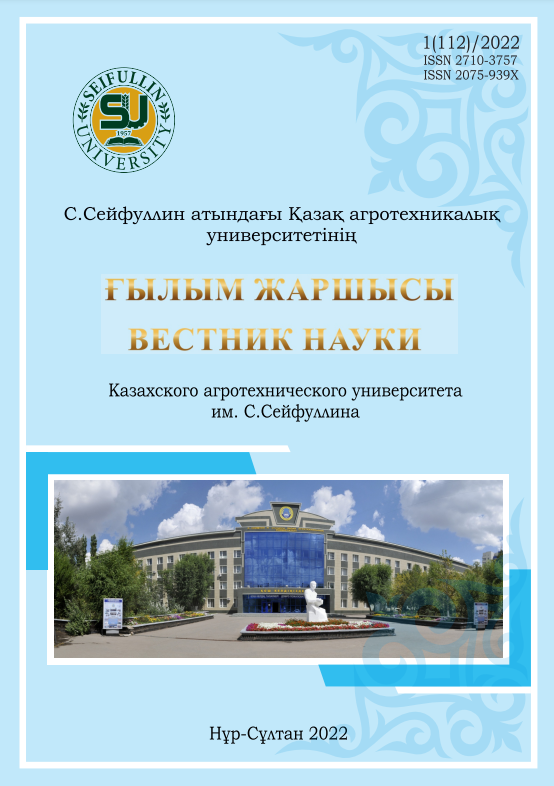IMMUNOASSAY OF ANTIBIOTICS IN LIVESTOCK PRODUCTS
DOI:
https://doi.org/10.51452/kazatu.2022.1(112).903Keywords:
antibiotic; residual amount of antibiotic; antibody; cattle, milk; meat; enzyme linked immunosorbent assay.Abstract
Contamination of animal products with antibiotics is becoming one of the most pressing global problems. Antibiotics, as a rule, end up in food as a result of their misuse as therapeutic and prophylactic agents or animal growth stimulants. Prolonged consumption of foods containing residual amounts of antibiotics can cause adverse effects on human health, as well as lead to the formation of antibiotic-resistant forms of microorganisms. In this study, a method was developed for immunizing rabbits, which makes it possible to obtain highly active antibodies specific for the epitopes of streptomycin (STR), chloramphenicol (CAP), and oxytetracycline (OTC), which were used in competitive ELISA (c-ELISA) to detect antibiotics in standard solutions. The c-ELISA had a minimum detection limit for tested antibiotics in the range of 1.5-4.5 ng/ml. The developed protocol for c-ELISA showed its suitability for express testing of livestock products for residual amounts of STR, CAP and OTC. Further research is needed to determine the diagnostic value of c-ELISA in comparison with imported analogues.

